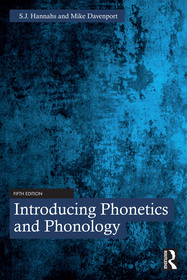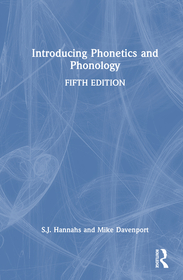
The Philosophy of Keith Lehrer
Essays on Knowledge, Consciousness, and Freedom
Sorozatcím: Synthese Library; 503;
-
12% KEDVEZMÉNY?
- A kedvezmény csak az 'Értesítés a kedvenc témákról' hírlevelünk címzettjeinek rendeléseire érvényes.
- Kiadói listaár EUR 139.09
-
57 687 Ft (54 940 Ft + 5% áfa)
Az ár azért becsült, mert a rendelés pillanatában nem lehet pontosan tudni, hogy a beérkezéskor milyen lesz a forint árfolyama az adott termék eredeti devizájához képest. Ha a forint romlana, kissé többet, ha javulna, kissé kevesebbet kell majd fizetnie.
- Kedvezmény(ek) 12% (cc. 6 922 Ft off)
- Kedvezményes ár 50 765 Ft (48 347 Ft + 5% áfa)
Iratkozzon fel most és részesüljön kedvezőbb árainkból!
Feliratkozom
57 687 Ft

Beszerezhetőség
Még nem jelent meg, de rendelhető. A megjelenéstől számított néhány héten belül megérkezik.
Why don't you give exact delivery time?
A beszerzés időigényét az eddigi tapasztalatokra alapozva adjuk meg. Azért becsült, mert a terméket külföldről hozzuk be, így a kiadó kiszolgálásának pillanatnyi gyorsaságától is függ. A megadottnál gyorsabb és lassabb szállítás is elképzelhető, de mindent megteszünk, hogy Ön a lehető leghamarabb jusson hozzá a termékhez.
A termék adatai:
- Kiadó Springer Nature Switzerland
- Megjelenés dátuma 2025. október 2.
- Kötetek száma 1 pieces, Book
- ISBN 9783031960406
- Kötéstípus Keménykötés
- Terjedelem310 oldal
- Méret 235x155 mm
- Nyelv angol
- Illusztrációk XIII, 310 p. 700
Kategóriák
Hosszú leírás:
"
This book contains eighteen original essays engaging with Keith Lehrer’s contributions to philosophy. The first nine chapters focus on Lehrer’s work in epistemology and philosophy of mind. These chapters examine the role of meta-justification in Lehrer’s (and Thomas Reid’s) epistemology, explore the epistemological significance of self-trust and how to restore self-trust to victims of epistemic injustice, challenge Lehrer’s solution to the hard problem of consciousness, question Lehrer’s account of the basing relation, and discuss the important role that experience and exemplarization play in Lehrer’s coherence theory of justification and in philosophy of science more broadly.
The second nine chapters focus on Lehrer’s work on freedom and determinism. These chapters explore the nuances of Lehrer’s theory of ultimate freedom, discuss the role of power preferences in his account of free choice, explore whether free choices must be explained by power preferences, discuss Lehrer’s views on scientific explanation, explore his claim that freedom of choice is consistent with determinism, challenge his response to the consequence argument, explore whether choices explained by adaptive preferences are free, and investigate whether plural subjects can choose freely.
The book concludes with Lehrer’s masterful responses to each of the essays. Those interested in epistemology, philosophy of mind, freedom and moral responsibility, and the intersection of these fields should find the book of great interest.
" TöbbTartalomjegyzék:
Preface.- 1 Introduction (Mylan Engel Jr and Joseph Campbell).- Part 1: Lehrer on Knowledge and Consciousness.- 2 Credentialist Foundationalism (Matthias Steup).- 3 Beyond Coherentism (Bruce Russell).- 4 Raco’s Racism Revisited (Nicholas D Smith).- 5 Lehrer, Reid, and Trustworthiness (Patrick Rysiew).- 6 Tropes, Universals, and the Hard Problem (Leopold Stubenberg).- 7 The Keystone Loop, Self-Trust, and Epistemic Reparations to Oneself (Sarah Wright).- 8 Exemplar Representation and Explanatory Loops (James Van Cleve).- 9 Exemplarization and Generalization (Glenn Ross).- 10 Exemplarization and the Scientific Self (Otávio Bueno).- Part 2: Lehrer on Freedom and Consciousness.- 11 Lehrer on Explanation and Choice (Joseph Campbell).- 12 In Defense of Indefensible Freedom (Hoi Yee Chan).- 13 Preferences, Habits, and Free Choice (Ann Levey).- 14 Why Power Preferences Won’t Set You Free (Mylan Engel Jr).- 15 Freedom of Choice, Explanation, and Ultimate Preference (Laura W. Ekstrom).- 16 The Sludge Runs Over: The Possibilities of Freedom (Ritwik Agrawal).- 17 Lehrer on the Consequence Argument (Peter van Inwagen).- 18 On Moralizing Free Will in We-Mode Groups and Plural Subjects (Angelo Corlett).- 19 Dual Freedom and the Power of Preference (Ocean Cangelosi).- Part 3: Lehrer Replies to His Critics.- 20 Lehrer on Knowledge, Consciousness, and Freedom (Keith Lehrer).- Index.
Több








